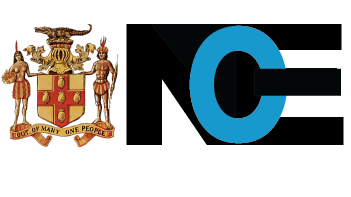Introduction
The Jamaica Education Transformation Commission (JETC) has proposed 365 recommendations to reshape the nation’s education system. These reforms aim to address critical issues such as improving access, enhancing governance, upgrading teacher training, and modernizing infrastructure. While significant progress has been achieved in some areas, hurdles remain in ensuring that these recommendations create lasting and equitable change. This blog explores the advancements made, the challenges faced, and the pivotal role school boards play in implementing these transformative reforms.
Progress to Date
Jamaica’s education system has begun to experience positive changes due to the JETC recommendations. A major milestone is the modernization of the curriculum, with the introduction of a standards-based framework known as the National Standards Curriculum (NSC). This student-centered approach incorporates life skills, digital literacy, and practical applications to better prepare students for real-world challenges. The NSC represents a significant step in aligning education with Jamaica’s developmental goals.
Another area of progress is the digital transformation of classrooms. Initiatives like the "Tablets in Schools" programme have expanded access to technology, equipping students and teachers with tools to foster interactive and technologically-driven learning environments. These efforts are especially crucial in bridging the digital divide between urban and rural schools.
Teacher development has also been prioritized, with a focus on professional standards and training. Teachers now have access to programmess that equip them with modern teaching techniques, including technology integration and student-centered methodologies. Additionally, community engagement has increased, with more parents and local leaders actively participating in school activities and decision-making processes. This heightened involvement strengthens the bond between schools and their communities, fostering a collective sense of responsibility for education.
Challenges
Despite these advancements, the country continues to contend with restraining factors which hinder the full implementation of the JETC recommendations. A significant challenge is inadequate funding for plans and programmes. Many schools struggle to secure the resources needed to scale reforms effectively, particularly in rural areas where facilities are already stretched thin. Infrastructural gaps also remain a pressing issue.
Additionally, resistance to change has emerged as a barrier. Some stakeholders, including educators and parents, are hesitant to embrace reforms due to a lack of awareness or fear of disrupting traditional practices. This hesitation highlights the need for effective communication strategies to educate stakeholders about the long-term benefits of these reforms.
Teacher shortages further compound the challenges. Recruiting and retaining qualified teachers, especially in remote areas, remains a challenge. This shortage places additional strain on existing staff and hinders the consistent delivery of quality education. Lastly, monitoring and accountability mechanisms are not always robust, making it challenging to ensure uniform implementation of reforms across all schools.
The Role of School Boards
School boards play a crucial role in driving the implementation of the JETC recommendations at the school level. Their ability to manage resources effectively is essential to addressing funding constraints and ensuring that investments are directed toward areas of greatest need. By engaging with communities, school boards foster local support for reforms and create a shared vision for progress.
Additionally, school boards are responsible for overseeing the implementation of policies aligned with the JETC recommendations. This involves working closely with principals, teachers, and parents to translate national objectives into practical actions for the benefit of students. Beyond implementation, school boards act as advocates for additional resources and support, amplifying the voices of their schools to higher authorities.
Accelerating Progress
School boards also play a key role in helping public educational institutions overcome challenges and accelerate reform strategies. Their main goal is to ensure that new initiatives introduced by the Ministry are prioritized, embraced, and adopted at the school level. To achieve this, boards must advocate for the schools under their charge, ensuring that institutions are equipped with the necessary tools, resources, and techniques for sustainable growth and development. This requires forging partnerships with various agencies of the Ministry, such as:
- The Jamaica Teaching Council (JTC), responsible for teaching quality;
- The National Education Inspectorate (NEI), which monitors the implementation of standards at the school level;
- The National College for Educational Leadership (NCEL), that provides support to school leaders.
Effective communication with stakeholders is vital to building trust and understanding. Through forums, newsletters, and social media, school boards and government agencies can highlight the benefits of the reforms and address concerns of educators, parents, and students.
Community Collaboration
Fostering collaboration among school boards, communities, and government agencies is crucial to aligning efforts and mobilizing resources to achieve shared goals that support positive student outcomes.
The transformation of Jamaica’s education system is a collective effort that requires the participation of all stakeholders. School boards, parents, and communities must work together to ensure the successful implementation of the JETC recommendations.
Join your local school board, attend forums, or volunteer in your community to advocate for change. Together, we can overcome challenges and create a brighter future for Jamaica’s students.
Volunteer to serve on a School Board in Jamaica today and help Jamaica’s children realize their full potential.
About Us
The establishment of the NCE was born out of the need to have a non-partisan, national and strategically placed organisation that would "address a wide range of issues impacting the education process".
Contacts
For general information about the NCE, please contact us at:
- nce(@) nce.org.jm
- (876) 922-1400-9 Extns: 2031-2034
- Ministry of Education, Youth & Information
- Caenwood Centre, The Media Building, 1st Floor
- 37 Arnold Road, Kingston 5

